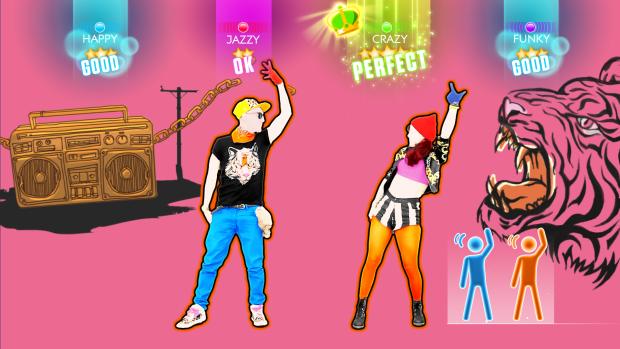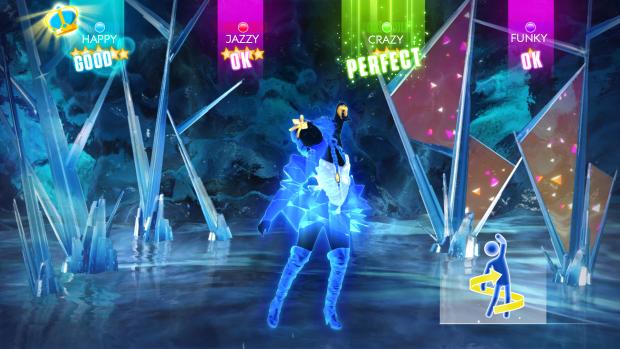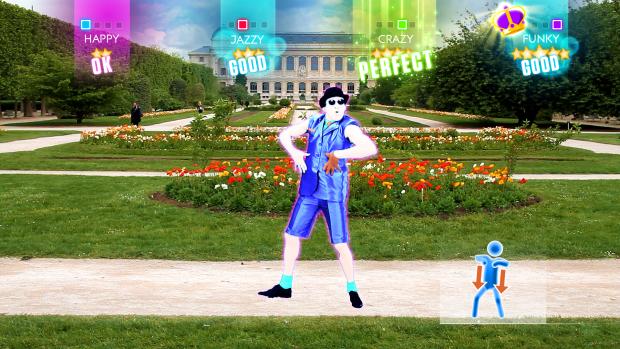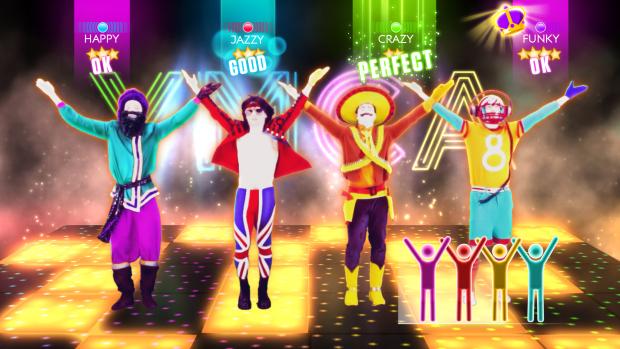As the Christmas buying season approaches, so does the annual slew of big-name games vying for your attention on retail shelves. Despite the success over recent years of games that took the chance on a mid-year release – such as Red Dead Redemption or The Last of Us – video game publishers still rely on the tried and tested holiday season release window. As well as your big-hitters though, gamers can also expect to see a similar pattern with casual and party games. And none of those have been bigger over the last five years than he Just Dance series.
With Dance Central going AWOL this year – probably down to the cross-generational gap and the fact that Harmonix are working on the Kinect-based Fantasia title – Just Dance will be going unchallenged in the dancing stakes this year. Perhaps this is a reason to worry, as in a situation with a lack of competition many might rest on their laurels. But maybe this lack of pressure could allow the developers at Ubisoft to experiment and take the game forward in a new direction.
At first glance, the game certainly doesn’t break down any of your preconceptions about the series. Bright, neon colours and bold visuals punctuate every screen, with what has become the recognisable Just Dance house style. In fact, it probably looks a little slicker than ever before, with more creative on-screen characters and backgrounds. At its core the game does indeed stay very close to home, meeting expectations. The same slightly forgiving motion detection remains, whilst the choreography within the dance routines still chooses to focus more on being humorous to play through, rather than being entirely authentic or technically challenging.

This is not necessarily a bad thing, and whereas the first couple of Just Dance titles could easily have been accused of being inaccurate and overly-simplified, since the series went multi-platform last year and adopted the use of Kinect and the PlayStation Move, it has definitely become a little more accurate and less reliant on exaggerated, wild movements. This of course also depends on the difficulty of the track – and there are a range of songs across different levels to pick from, with the easiest made up of simple loose moves, and the harder ones being tighter and trickier.
These more challenging difficulty levels are achieved, in part, by the lack of any real relationship between what the player is performing and what you see on-screen. Whereas other dance games might show a visual representation of your actual movements – or indeed your full body recording in-game – or at least highlight on the instructor which limbs you have managed to nail and which you have moved incorrectly – there is none of this visual feedback in Just Dance 2014. In this way, the game roots itself further still in the arcade section, not allowing for gamers to really practice or improve, as there is nothing to show them exactly where they have been going wrong.
And whilst there are a plethora of game modes on offer, Ubisoft have still refused to create any sort of training or practice mode – the emphasis here is firmly placed on fun, not learning. Speaking of game modes, there are many new and returning ones on show. We have your typical classic dance mode and dance battles, which have now been joined by On Stage and Extreme modes. On Stage allows for one player to dance lead, accompanied by two player or computer-controlled backing dancers, who perform a slightly different routine.

There is also Karaoke scoring, which works across all game modes and does what it says on the tin: giving players bonus points for singing along correctly whilst dancing. But in typical Just Dance style, it doesn’t punish players for singing incorrectly. And to flesh things out further, Sweat mode puts together workouts (pre-set song playlists) of different lengths and records the number of calories that the player has burned during gameplay. Not all songs can be performed in every game mode to begin with, but by playing more and earning credits, you can buy sweat, battle and on-stage modes for play within different tracks.
The big new addition to the game this year though is Just Dance World – the fully online connected social dancing aspect of the game. This may sound a little confusing, but what it amounts to is a persistent online world with challenges and leaderboards – allowing players to take on pre-set playlists and share their scores with the world. You can face off against other like-minded gamers, pick teams to combine your scores and try to beat other teams, or simply join in with weekly challenges and score attacks.

Considering that dance games are a pretty social affair anyway, it is somewhat surprising that a mode like this was never introduced before – as it allows solo gamers to participate in the social side of things, and link up with gamers even if none of their friends are willing to dance with them. You don’t play head to head, but can see other players scores for the same song whilst you perform it. It is like having all of the competition of online multiplayer, but without having to directly go up against another player.
This mode also fully incorporates Just Dance TV, of course, which is the video sharing feature that runs throughout the entire game. The game records clips of the player randomly throughout each performance using the Autodance feature, and this is then mixed and presented at the end of a song. You can edit this and apply special effects, before saving the video and choosing to share it either through the Just Dance TV network in-game, or direct into social media outlets such as Facebook. It has never been so easy to embarrass your friends or yourself.
The lack of any sort of campaign or career mode remains somewhat of a disappointment, however. Whereas the Dance Central games created story modes that could keep a single player busy for quite some time – Just Dance relies on regular game modes with one-off dances or short playlists only. You do earn stars and credits as you play through all modes – that in turn unlock new avatars and let you unlock new song modes – but there is no long-term goal or objective to work towards as such. All modes can be played with multiple players though, so even if there isn’t much to keep the solo player busy, there is a lot of party play on offer. The game will certainly have a lot more legs as a party title, but really that is how it has been designed.

VERDICT: Just Dance 2014 will feel immediately familiar to fans of the series, but there are quite a few new options to explore when one jumps into the game. Unfortunately most of these modes only equate to slight variations upon the theme, rather than really adding much extra variety. Just Dance World is the biggest innovation, and if the online community actually builds up and becomes quite loyal, then this could be the real selling point of the title. It is a completely different way to play the game and offers all the benefits of online play, without actually having to play alongside a stranger.
Add on top of that the new sharing features, and the title is very socially-centric, which should add a lot of long-term appeal to a traditionally short lifespan title, reserved almost exclusively for parties and get-togethers. Improved sensor accuracy makes the title both more challenging and more rewarding – as your actions actually have a real effect on the game, unlike Just Dance 1 & 2. There are improvements that could be made to the game to make it even more precise, but Ubisoft are still firmly pitching the game as fun, over an accurate dancing simulation. And in that respect, it is pretty successful.

VERY GOOD. An 8/10 is only awarded to a game we consider truly worthy of your hard-earned cash. This game is only held back by a smattering of minor or middling issues and comes highly recommended.
Our Scoring Policy







